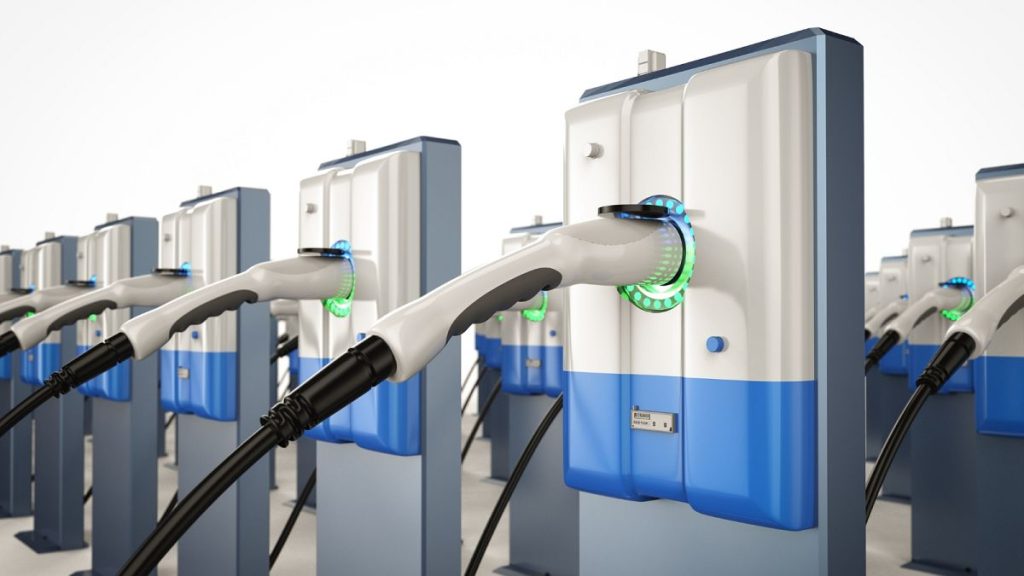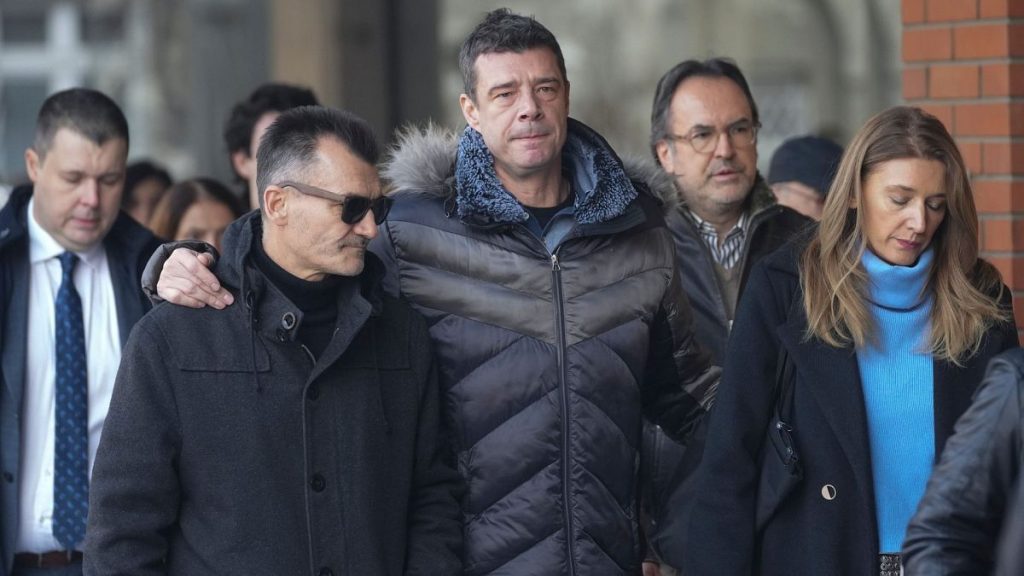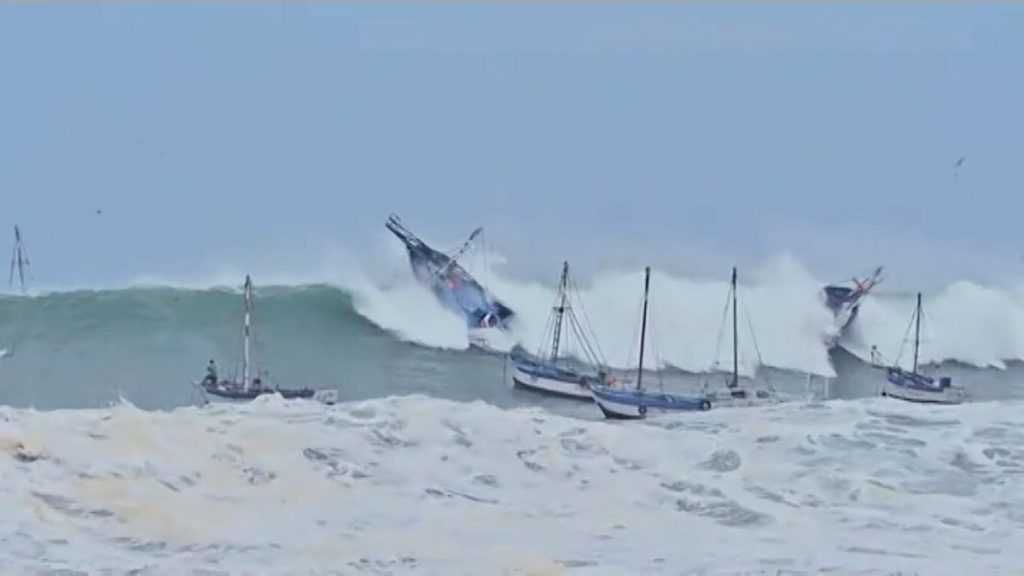Two asylum seekers with first-hand experience of Australia’s brutal offshore migrant processing centres told L’Observatoire de l’Europe they have a message for European leaders mulling the prospect of doing the same back home: don’t.
When Behrouz Boochani was detained at the Australian-run regional processing centre on Manus Island from 2013 until 2017, writing was a means for him to grapple with the everyday ruthlessness germinating in the humid Papua New Guinea heat around him.
Some of these scenes — published in poems, articles and award-winning books such as No Friend But the Mountains — detail the endless carousel of reportedriots, murders, suicides, rapes, preventable deaths and other harms that occurred at the offshore detention centre.
Other vignettes pay witness to the rot and desperation facing those who waited, often years, for the Department of Home Affairs to process the validity of asylum claims for Australia. This is a process the International Criminal Court referred to as “cruel, inhuman” and “degrading” and appeared to violate fundamental rules of international law.
Boochani, a Kurdish-Iranian journalist-turned-human rights advocate, has a message for European countries wanting to copy this Australian-made architecture for extraterritorial processing of asylum claims.
“Hundreds of people have been separated from their families. Thousands of people have been damaged, mentally and physically. Many people have been killed,” Boochani said from his home in New Zealand’s capital, Wellington.
“Australia has created a tragedy.”
Although Boochani did not answer L’Observatoire de l’Europe’ question about the personal trauma he continues to live with from his time at the squalid centre — described by immigration campaigners as resembling fenced military barracks — his writing describes the island as a “prison camp” and those waiting for their asylum applications to be processed as “forgotten prisoners”.
This is despite the Australian parliament’s official figures stating that in 2016, over 80% of all asylum seekers on the islands of Manus and Nauru had valid reasons to seek the status of refugees.
Boochani wants his and the stories of thousands of other asylum seekers that were chewed up and spat out through Australia’s regional migrant processing centres to serve as cautionary tales for the rest of the world.
Europe’s ‘fantasy options’
Over the past decade, migration became a hot-button issue reverberating throughout the continent, with conservative European leaders using the influx of foreigners asa straw man for everything from shrinking housing market to stagnating wages.
This culminated when a swag of European member states indicated they wanted to copy Australia’s offshore migrant processing policies by processing new arrivals outside their countries.
And although the most recent European Parliamentary Research Servicebriefing on extraterritorial processing of asylum applications states no claims within the bloc have been processed this way yet – this could rapidly change.
In May, 15 member states penned a controversial letter calling on the EU to developpolicies centred on outsourcing migration and asylum claims. The parties wanted to disrupt irregular migration routes and create a level playing field for dealing with new arrivals, they argued in the document uploaded to social media platform X.
The letter referenced “building” on models such as the five-year, €670 million deal struck between Italy and Albania – an agreement stipulating Rome will outsource the processing of roughly 36,000 asylum applications annually to the Balkan country, with two dedicated facilities constructed to house new arrivals.
Italian Prime Minister Giorgia Meloni has repeatedlydefended the controversial plan — described byAmnesty International as “shameful” — repeating these centres are necessary to crack down on “human trafficking” and prevent deaths in the Mediterranean.
Catherine Woollard, the director of the European Council on Refugees and Exiles, said these externalisation “fantasy options” rarely work and at best are a distraction.
“At worst, they cause immense stress and suffering as people are left in limbo without access to asylum,” she told L’Observatoire de l’Europe. “Generally, they founder due to political opposition in the countries targeted and legal obstacles as courts rule out transfer to unsafe places.”
Austria, another signatory to the letter, indicated in November it also wanted to process asylum seekers in a third country by mimicking the controversial UK-Rwanda-style plan, British Prime Minister Rishi Sunak’s €280-million vision to send asylum seekers to the East African country for processing.
This deal tanked when the Supreme Court ruled in 2023 the plan was unlawful — and when newly minted PM Keir Starmer took office and said the arrangement was “dead”.
But Vienna’s position was firmed up when Austria’s EU Minister Karoline Edtstadler told L’Observatoire de l’Europe inAugust the central European country needed to get “serious” about migration. “We need to take further steps to develop third country (non-EU) asylum centres,” she said at the time.
Boochani was recently in Austria — which happens to be the world leader in anti-immigrant sentiment. According to the most recentDemocracy Perception Index (2023), Austrians, more than any other community surveyed, wanted their government to prioritise reducing migration.
Asked about whether he felt anti-immigrant sentiment percolating there, the 41-year-old he noticed xenophobia in language. But he was quick to point out how it’s not unusual for such words to infiltrate a country well ahead of any actual actions. “Australia has been active (in trying) to export this system,” he said, “and part of this is exporting language.”
This lexicon includes “Stop the boats,”a highly politicised three-worded slogan that Sunak lifted from ex-Australian Prime Minister Tony Abbott to prop his Rwanda plan… The phrase wasrepeatedly chanted at the anti-immigrant riots that ripped through Britain in August.
“This language allows them to criminalise the narrative,” Boochani explained. “So now we see that they are not only following Australia’s offshore detention logistically, but they are also borrowing the language as well. That’s why we hear those words in the UK.”
The Australian model
When L’Observatoire de l’Europe asked Behrouz how seven years on Manus Island impacted him, he paused for a while before answering. “The banishment itself is a humiliation,” he said. “It is torture. It is painful.”
“You lose seven years. That causes damage.”
Australia has operated strict offshore processing centres for two decades. Before almost totally shuttering, these centres were predominantly located at Manus Island and Nauru in Papua New Guinea and ran in tandem with harsh boat turnback policies that were a part of the decade-old Operation Sovereign Borders (OSB).
According to the Home Affairs website, “There is only one way to gain entry into Australia — with a valid Australian visa.”
“You will never settle in Australia. You have zero chance of success,” Rear Admiral Brett Sonter, the commander of the joint agency taskforce, says in a video posted online to deter those travelling to Australia by boat. National legislation stipulates any individual unlawfully attempting to reach the Australian continent by boat will be turned back to the point of departure, returned to their home country, or transferred to a third country for processing.
This means Australia is the only country in the world to enforce immigration detention for non-lawful arrivals. According to theAustralian Refugee Council, 4,292 people — including children — were sent to offshore processing facilities after landing in the sunburnt country.
When UN Special Rapporteur on the Human Rights of MigrantsFrançois Crépeau visited Nauru in 2017, before the Australian government imposed a media blackout, he noted families are often separated for several months — or even years — and that the average time in detention was 454 days.
“The special rapporteur met people who had been in detention for over seven years,” the report stated, adding it was “not the right environment for often already traumatised people.” Crépeau said many detained children exhibited signs of post-traumatic stress disorder, anxiety and depression, with feelings of hopelessness and frustration often leading to “acts of violence against themselves or others”..
“The special rapporteur heard of suicide attempts and self-harm, mental disorders and development problems, including severe attachment disorder. Many of the parents despair over the impossibility of offering their children a promising future, and feel guilty.”
‘You kill them mentally and emotionally’
Zaiki Haidari is a refugee rights campaigner working at Amnesty International Australia and living in Sydney. The Afghanistan-born Hazara refugee told L’Observatoire de l’Europe that his job within the organisation involves speaking candidly with politicians in Canberra about the reality of the detention systems and what costs these policies can exact on people. This includes immense pain.
“One of my friends burned himself alive, saying ‘Humanity doesn’t exist,’” Haidari said, remembering Khodayar Amini self-immolating in 2015.
“We were fleeing our country, escaping genocide and torture, and when we arrived in Australia, we were treated as animals. The experience of being detained was awful,” he said of his own experience.
Haidari sought asylum in Australia in 2012 by boat and was detained for a month and a half on Christmas Island – Australian territory some 1,500 kilometres west off the mainland. He didn’t end up on Nauru or Manus by mere chance.
But this doesn’t mean that Christmas Island is a much better destination.
In2022, the United Nations Committee Against Torture raised concerns over those detained there, with the Australian Human Rights Commission writing in 2017 the centre is “not an appropriate facility for immigration detention” particularly those vulnerable or detained for long periods of time.
Haidari described the centre as a jail, and that he was seen by the Christmas Island security staff and the Australian government writ large as “animals”.
“Why were we in this high-security environment but we hadn’t committed any crime or haven’t been on trial? Why are we being treated like criminals?” he said.
It’s been over a decade since Haidari resettled in Australia. He loves it there, saying it is the first place that has allowed him simply to live. “There was no physical violence towards me. There was no Taliban and there was no one to run after me,” he said.
According to the UN Refugee Agency, the Hazara community – one of Afghanistan’s largest ethnic groups living mainly in the central region of Hazarajat – has suffered from targeted discrimination, persecution and massacres, with 60% of the population killed since the 1890s.
Haidari knows, however, that others like him are currently languishing in offshore detention in Australia — 50 people in Papua New Guinea and 95 in Nauru, according to his estimates. There are also those that could endure the pain inflicted by these systems in the future.
The refugee advocate has a message for those mulling the idea of extraterrestrial asylum processing: “Never do this”.
“It’s awful. It’s inhumane. It’s a tool that will kill many human beings and their families… You kill them not by a weapon or the way they suffer genocide in their home countries. You kill them mentally and emotionally.”
“Do not listen to Australian politics because they don’t tell you the other side of the story.”








